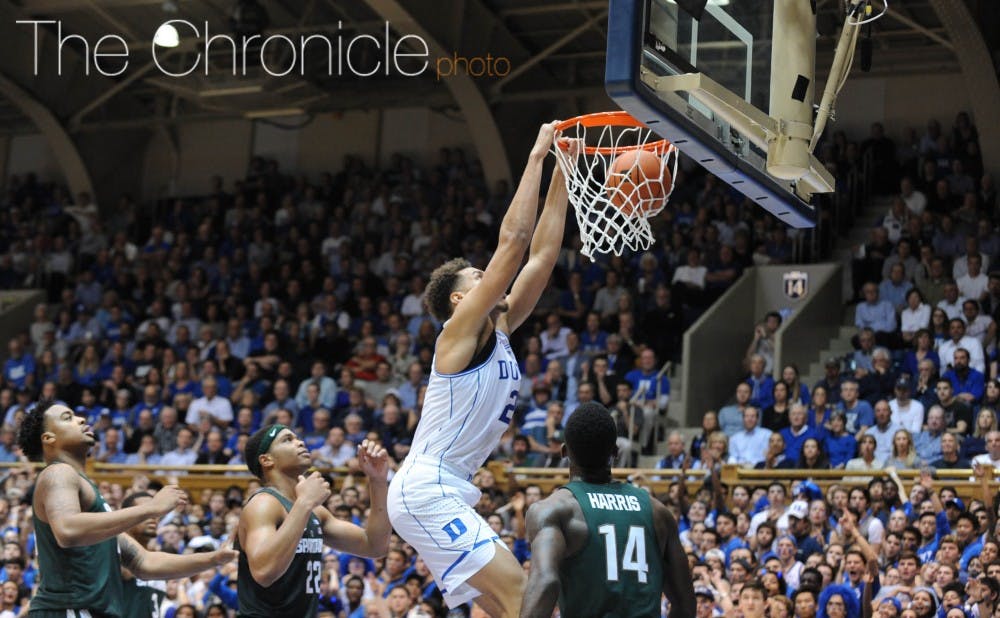Chase Jeter
- Year: Sophomore
- Height: 6-foot-10
- Position: Forward/Center
- This year's statline: 2.6 PPG, 2.7 RPG, 0.4 APG
- The Blue Zone's projected stat line: 4.2 PPG, 2.4 RPG, 0.3 APG
Season breakdown: Despite joining the Duke squad last year as the No. 11 prospect in the ESPN 100, Jeter found himself at the end of the bench for most of his two years in Durham. With highly-touted recruits Jayson Tatum, Harry Giles, and Marques Bolden entering the fold this year and Amile Jefferson’s veteran leadership on the floor, Jeter struggled to find consistent playing time.
Although he started the first four games of the season as injuries plagued the freshmen, Jeter was only able to produce an uninspiring 5.5 points and 3.5 rebounds per game in that span. His first start, opening day against Marist, was actually quite promising as he dropped 11 points and grabbed eight rebounds in 18 minutes.
However, as the freshmen were introduced into the lineup and Jefferson posted six double-doubles in an eight-game stretch, Jeter saw his minutes drop significantly. He only started two more games for the rest of the season, both in December against Maine and UNLV in his hometown of Las Vegas. Jeter last saw the court in a Jan. 14 loss to Louisville in which he scored zero points with two fouls and two turnovers.
On Jan. 23, Jeter underwent a minor lower back procedure to treat a herniated disk. Despite a successful operation and a quick return to warmups, head coach Mike Krzyzewski opted to leave Jeter on the bench as the Blue Devils closed out ACC play and navigated the postseason. With Bolden expected to stay in Durham, No. 3 recruit Wendell Carter Jr. arriving next fall and five-star center Mohamed Bamba potentially joining him, Jeter announced Monday that he will be transferring from Duke to be “closer to home.” Possible suitors that come to mind to land Jeter include UNLV and Arizona.
Results relative to expectations: With the hoopla surrounding the freshmen recruits, Jeter was not expected to play a major role in a deep Duke frontcourt. Despite seeing early opportunities due to injuries, Jeter never did not capitalize with his play. Ultimately, the back procedure proved to be the final nail in the coffin for Jeter’s playing time.
It will be interesting to follow whether or not Jeter can emerge as an impact player with his new team in the 2018-19 season. Recent Duke transfers Semi Ojeleye (SMU) and Michael Gbinijie (Syracuse) have found success in new environments, with the former earning American Athletic Conference Player of the Year honors this season and the latter leading the Orange to the Final Four last year, averaging 17.5 points per game and garnering second-team All-ACC recognition.
Get The Chronicle straight to your inbox
Signup for our weekly newsletter. Cancel at any time.

